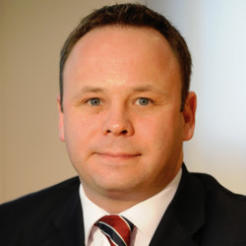Richard Macey, director of charities at M&G Investments, runs through the most important questions to ask fund managers before placing your endowment or reserve with them.
For charities with endowments or reserves, one of the key responsibilities of Trustees is to ensure that assets are managed effectively to contribute funds for the furtherance of their chosen mission, and to provide a sustainable long term future.
Key areas to tackle before selecting or reviewing a fund manager include agreeing a set of investment objectives that suit your needs, and establishing whether you require independent advice to assist in formulating these objectives, and selecting suitable managers.
Here are five key questions to ask when organising a review:-
Corporate structure – are they financially stable?
Firms are constituted in a variety of forms; some are owned by large banks or insurers, others will be independent publicly quoted companies, others are privately owned under a partnership model – be sure that you understand their corporate structure, and request evidence of their financial probity.
Ask for a copy of their corporate structure chart, and their annual Financial Controls Report (commonly called an ‘AAF Report’). Are they covered by the Financial Services Compensation Scheme (FSCS)?
Are the service and strategy proposed fit for your needs?
It is important to ensure that only managers offering relevant service and investment strategies are shortlisted. Some managers don’t offer independent advice, while others offer advisory and/or discretionary management services ‘in house’; does such advice apply only to their own product range, or are external funds from other providers included? Can they meet your specified income, total return and ethical requirements?
It is vital to be clear in stating your investment objectives, as this makes it easier for managers to propose a strategy and highlight the risks, and for you to judge whether they are meeting those objectives on an ongoing basis. Ambiguity is a recipe for disappointment…!!
Can they explain their process in a manner that you understand?
Fund managers should be capable of providing a clear summary of their proposed strategy that is clearly set out and not overloaded with industry ‘jargon’. Challenge and question any aspects that are not clear, and do not be afraid to discard those from your process that appear unwilling to engage with you in this regard.
Fees – are they competitive and transparent?
How much relates to the underlying funds/products included? How much relates to any advice or discretionary management services (if required)? Are there any other charges for administration and custody of assets, or for ongoing reporting and attendance at meetings? Ensure that you ask for a full breakdown so that you can compare options on a ‘like for like’ basis.
Do they have a strong performance track record and “sector heritage”?
While it is not the only factor that should be considered when reviewing managers, a strong record of past performance remains one of the few key evidence measures of a manager’s capabilities. Staff with considerable knowledge and experience in the sector will better understand the key objectives and service levels expected by charities.
These views should not be taken as advice.
Richard Macey is director of charities at M&G Investments
Tel; 020 7548 3731
Email; [email protected]
Visit; www.mandg.co.uk/charities
With thanks to M&G Investments for their support with this blog









